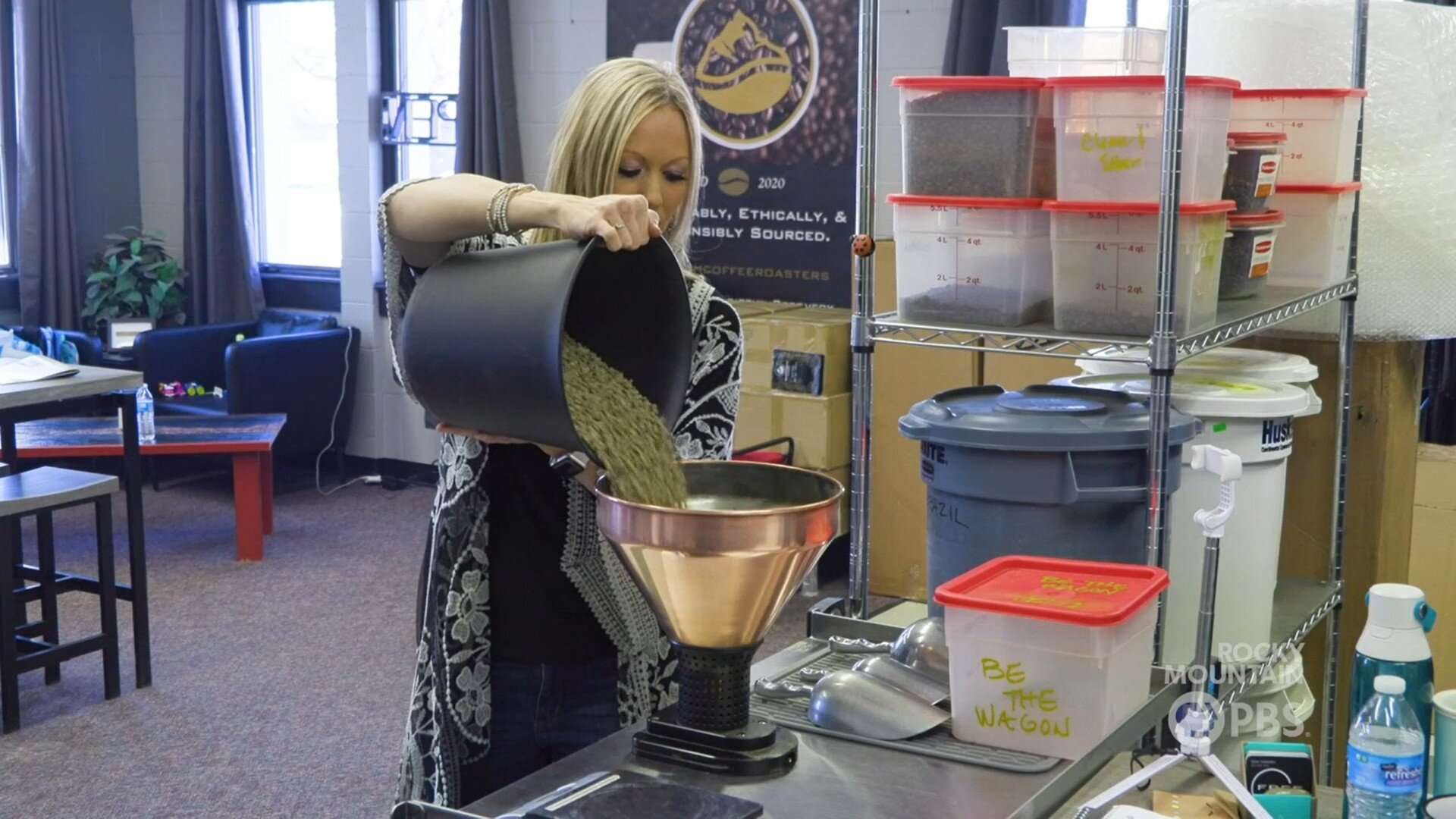A growing coffee business supports women in recovery

DENVER — Wagon Coffee Roasters is all about offering second, and sometimes even third chances.
The small business’ mission is to help women recovering from addiction and alcoholism by hiring and training them to help run the company, located in a renovated church near the University of Denver. Right now, women roast, bag and ship ground coffee and whole beans. The goal is for the business to become a fully functioning coffee shop by the end of March.
Kavita Darji is Wagon Coffee’s corporate trainer.
“I’m in recovery," she explained. "I’m five and a half years sober. I wanted to a part of something that’s living and growing and changing."
Darji started drinking when she was just 11 years old and, as a child of immigrants, faced a lot of racism growing up.
“From the get-go I wanted more to drink and I wanted to figure out how I was going to get more and have more and be more drunk,” Darji explained.
For Darji, being a part of Wagon Coffee gives her and other women a sense of belonging. “The natural inclination of any recovery community is to have coffee. It’s about hospitality. It’s about welcoming. It’s about giving someone something warm and loving and to be of service to them.”
Tami Canaday started the company in the middle of the pandemic. She identifies as the loved one of an addict in recovery. Her husband, Ryan, has been sober for nine years.
Canaday says running Wagon Coffee helps her recovery as the wife of an addict.
“It gives me so much hope because I see women like Kavita and I see her passion," she explained. "There’s so much shame involved that’s self inflicted. So what we do is offer love as many times as we can so that people really feel no judgment no shame. You’re welcome here.”

According to the Centers for Disease Control and Prevention, alcohol affects women differently than men. Even though men often consume more than women, differences in biological body structure mean most women absorb more alcohol and their bodies take longer to metabolize it. This makes women more susceptible to the long term negative health effects of alcohol than men, including cancer.
The American Institute for Cancer Research found that as little as a glass of wine a day increases a women’s risk for breast cancer by five to nine percent.
“The statistics are no joke. So when I was thinking about how I could give back tangibly, I kept thinking of women,” Canaday said.
Canaday explained that her company sources coffee beans from small farms all over the world.
“We’re getting coffee from Brazil, Guatemala, Nicaragua, Bali, Ethiopia, Papua New Guinea," she said. "And they have different flavor profiles. And to keep with the recovery centered these, we change it up an we have a lot of language that is recovery centered, like ‘Clean and Sober’ blend and ‘Sober AF’ blend."
Six months of sobriety is required to qualify for work at Wagon Coffee. More information is available on the Wagon Coffee website.
Dana Knowles is a multimedia journalist at Rocky Mountain PBS and can be reached at danaknowles@rmpbs.org.
Brian Willie is the content production manager at Rocky Mountain PBS. You can contact him at brianwillie@rmpbs.org.